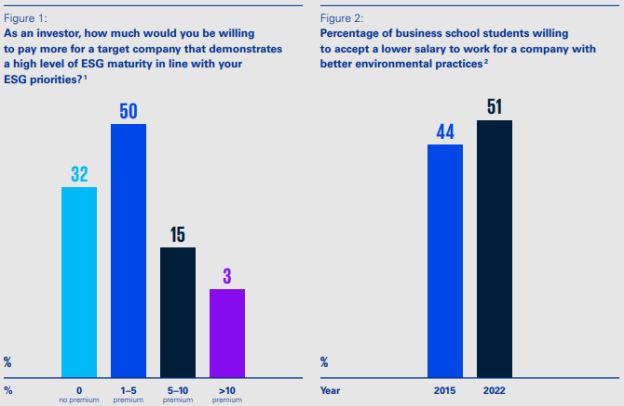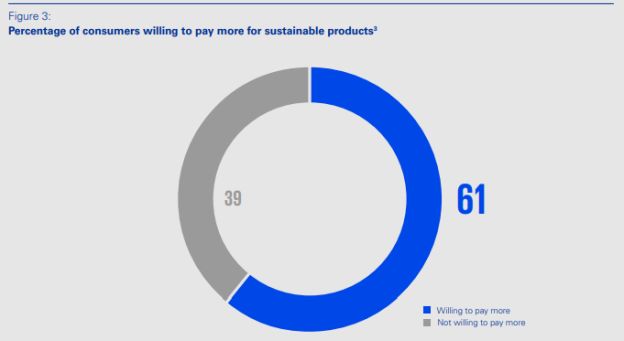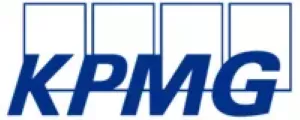The time is now – sustainability labels have never been more important
Sustainability has become a significant area of focus for businesses across sectors. Worldwide, many jurisdictions have implemented or further advanced draft legislation that will have profound implications on the adoption of more sustainable business practices. At the same time, key stakeholder groups place a greater emphasis on a business's sustainability performance – from investors (Figure 1) to employees (see Figure 2) and consumers (see Figure 3).


These developments have reinforced the priority of the topic for many business leaders, with those who choose to ignore the topic doing so at their own peril. Many businesses have made public pledges on environmental, social and governance (ESG)-related goals, developed an ESG strategy of how to reach these goals – and have started to communicate their claims of ESG-related achievements publicly.
In this environment of increasing stakeholder demand for sustainability, evolving regulation, and a general "ESG arms race" by businesses in response, it is not surprising that greenwashing has become a paramount concern. There are plenty of examples of companies that have overstated their ESG credentials, either purposefully or inadvertently. In early 2021, research by the European Commission and national consumer authorities into companies' green claims on their websites found that "in 42% of cases the claims were exaggerated, false or deceptive".4 Recent research has also shown that consumers are aware of this and punish greenwashing companies for their failures.5
Credible signaling of a business's ESG virtues has never been more important, therefore. Sustainability standards, labels and certifications (sometimes also referred to as ecolabels or ESG labels and jointly referred to in this document as sustainability labels for ease of reading) are key tools to do so. They enable a company to quickly convey to relevant stakeholder groups that its products, services or processes meet certain sustainability standards. They are an increasingly valuable tool to differentiate a company or product in the market.
Click here to continue reading . . .
Footnotes
1. Based on a KPMG study of 150 active dealmakers across Europe, the Middle East and Africa: https://assets.kpmg/content/dam/kpmg/xx/pdf/2022/11/ema-esg-due-diligence-report.pdf
2. Based on a recent study by Yale University and the Global Network for Advanced Management of 2,000 business students globally: https://cbey.yale.edu/sites/default/files/2022-02/Rising%20Leaders_2022%20_Final.pdf
3. Based on a KPMG study of 30,000 consumers across 11 countries: https://home.kpmg/xx/en/home/insights/2022/08/me-my-life-and-my-wallet-sector-deepdive.html
4. https://ec.europa.eu/commission/presscorner/detail/en/ip_21_269
5. https://hbr.org/2022/07/how-greenwashing-affects-the-bottom-line
The content of this article is intended to provide a general guide to the subject matter. Specialist advice should be sought about your specific circumstances.


